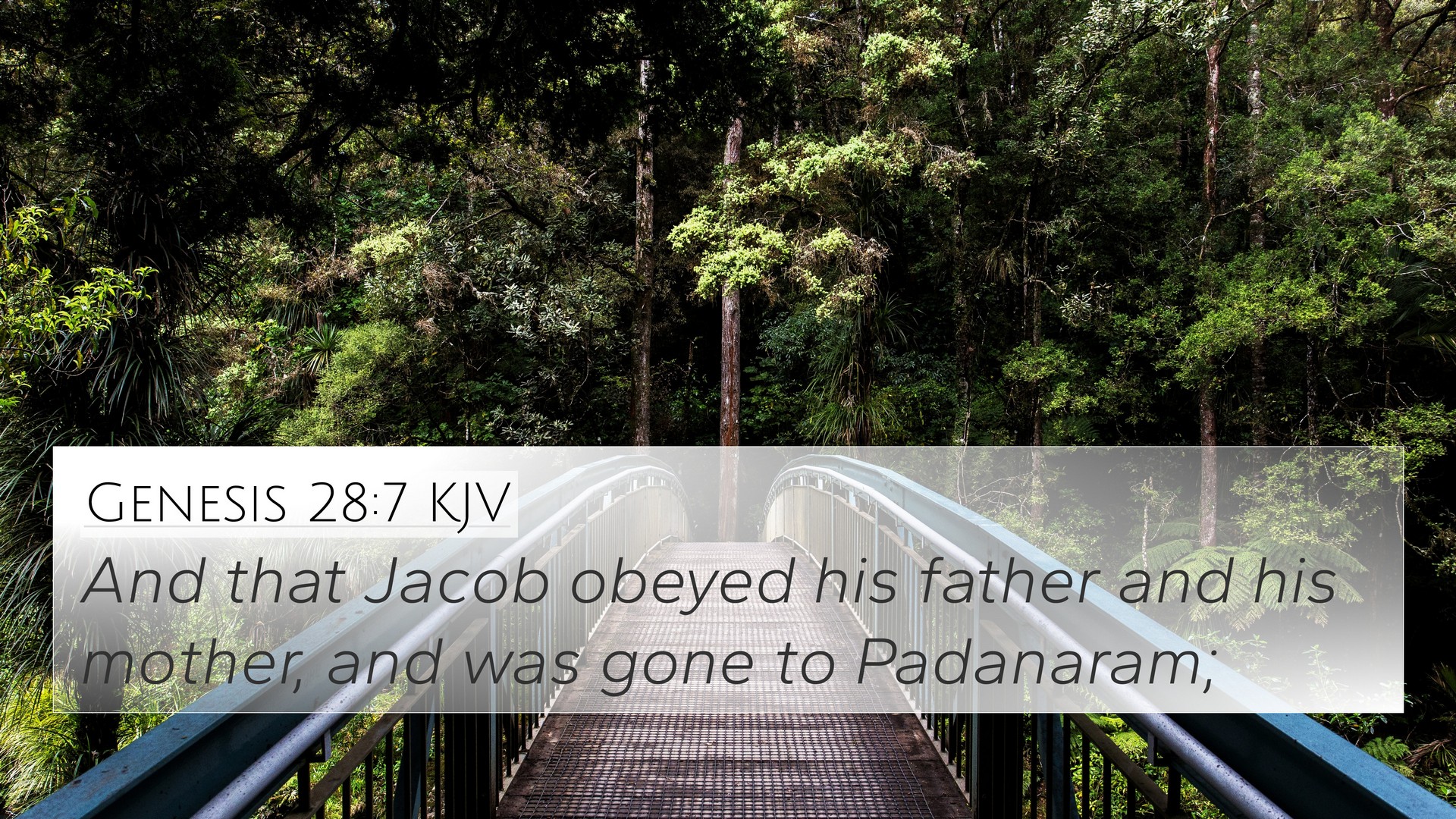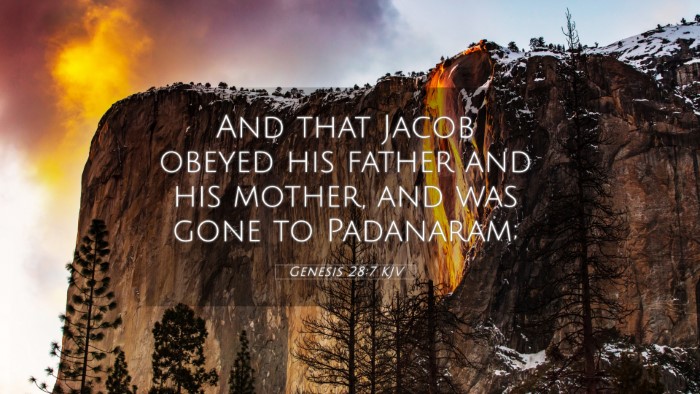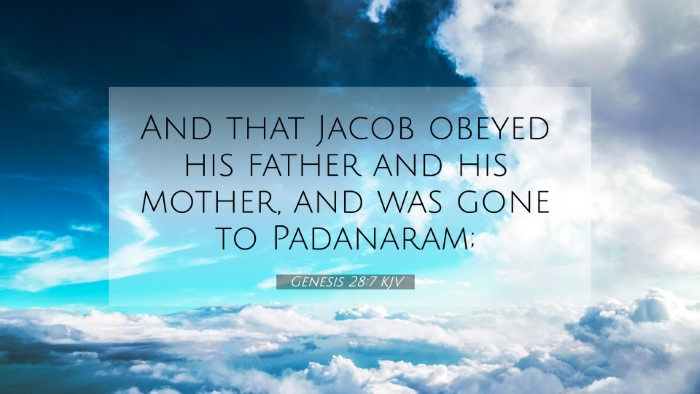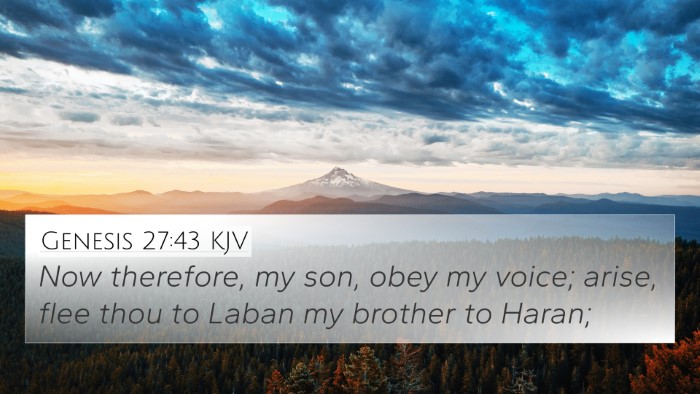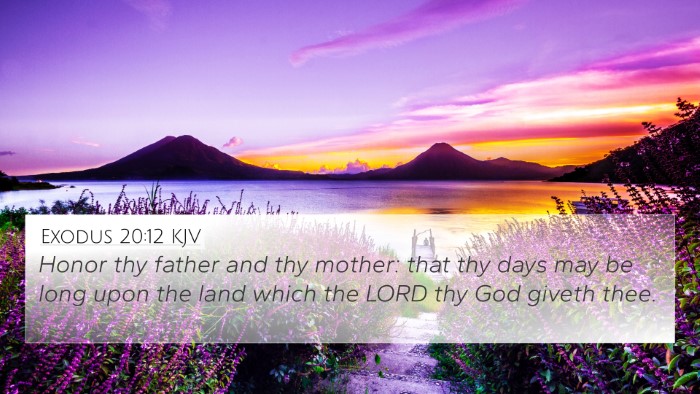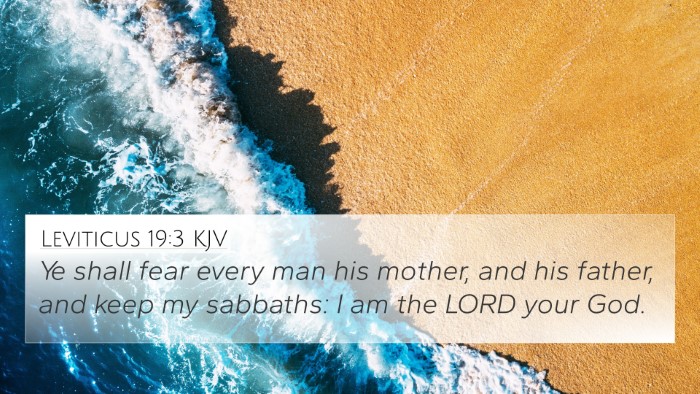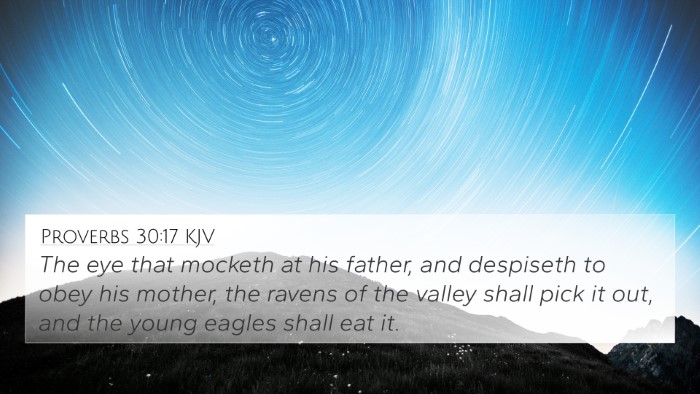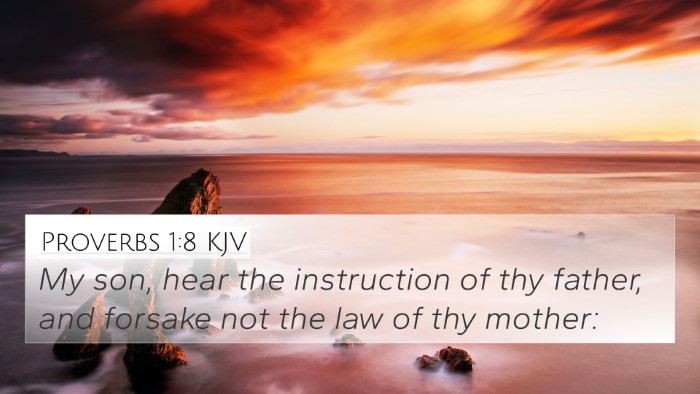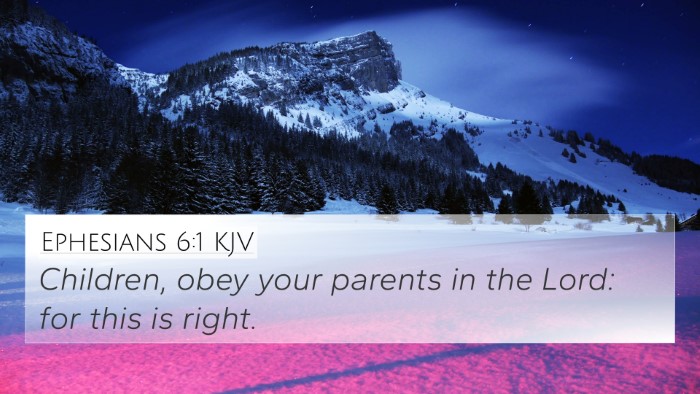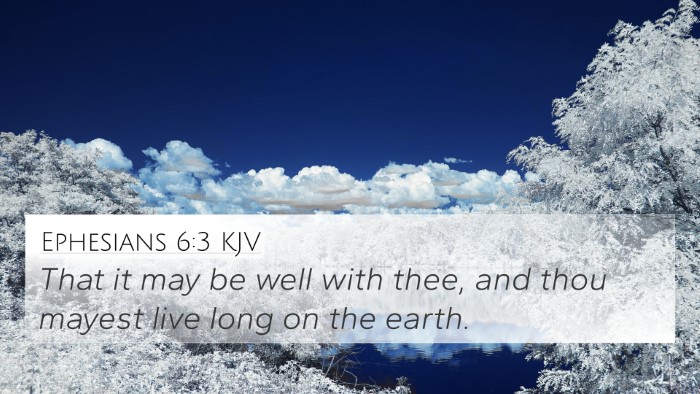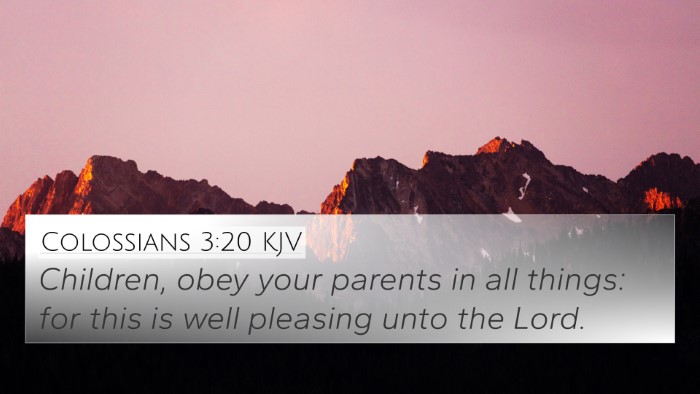Understanding Genesis 28:7
Verse Context: In Genesis 28:7, we find Jacob reflecting on the significance of obeying his father, Isaac, in relation to his journey to Paddan-aram. This verse marks a pivotal moment in Jacob's life as he embarks on a quest for a wife and seeks to fulfill the divine promise made to his family.
Verse Text: “And that Jacob obeyed his father and his mother, and was gone to Padan-aram.”
Commentary Insights
Genesis 28:7 reveals Jacob's obedience as a crucial aspect of his character development and his relationship with God. Drawing from public domain commentaries, we can explore several key themes:
- Obedience to Authority: According to Matthew Henry, Jacob's obedience to his parents highlights the importance of honoring father and mother, a value emphasized throughout scripture (Exodus 20:12). This submission not only serves familial harmony but also aligns with divine will.
- Divine Guidance: Albert Barnes notes that Jacob's journey to Padan-aram is not merely physical; it signifies a step toward fulfilling God's promise to Abraham and Isaac. His compliance with parental guidance is a manifestation of trusting in God's overarching plans.
- Preparation for Blessing: Adam Clarke emphasizes that Jacob’s journey was preparatory for the blessings he would later receive. His obedience positioned him to encounter God, which would lead to profound transformations in his life.
- Lessons in Family Dynamics: The relational dynamics between Jacob and his parents embody vital lessons on family roles. Jacob's decision reflects the necessity of adhering to wise counsel, a theme recurring throughout the Bible (Proverbs 1:8).
- Spiritual Growth: This moment marks the beginning of Jacob’s spiritual journey. His obedience sets the tone for significant encounters with God ahead, emphasizing the importance of following divine instructions (Philippians 2:12).
- Continuation of God's Plan: From this verse, it’s clear that God’s covenant promises continue through obedience and faithfulness across generations. Jacob embodies the transitional phase from the patriarchs to the development of Israel as a nation (Genesis 12:2-3).
- Character Development: The act of obedience serves as a formative point in Jacob’s character. Through his experiences, Jacob learns resilience, humility, and trust in God, which later shapes his identity and legacy (Romans 5:3-4).
Cross References
Genesis 28:7 is interconnected with several other Bible verses, illustrating the broad web of scriptural themes:
- Exodus 20:12 - God's command to honor parents.
- Genesis 12:2-3 - The promise made to Abraham and his descendants.
- Proverbs 1:8 - The encouragement to heed parental instruction.
- Hebrews 11:9 - Jacob’s faith in the land of promise.
- Genesis 32:9-12 - Jacob’s prayer reflecting upon God’s promise.
- Genesis 35:10 - God renaming Jacob to Israel signifies his role in divine plans.
- Matthew 1:2-16 - The genealogy of Jesus traces back to Jacob, fulfilling the covenant.
Thematic Connections
This verse connects with major biblical themes, highlighting the importance of obedience, divine instruction, and familial relationships within the biblical narrative. The insistence on honoring authority echoes throughout scripture and serves as a backdrop for understanding God’s dealings with His chosen people.
Conclusion
Genesis 28:7 serves as a pivotal moment in Jacob's journey, underscoring the values of obedience and faithfulness in the context of God's unfolding plan. By exploring this verse through various commentaries, we can appreciate the depth of its implications and its connections within the broader biblical narrative.
Further Study Suggestions
- Bible Cross-Reference Guides: Utilize tools that help identify connections between verses.
- Comparative Bible Studies: Explore the relationships between Old and New Testament themes.
- Identifying Scriptural Patterns: Look for parallels that exist across different books of the Bible.
